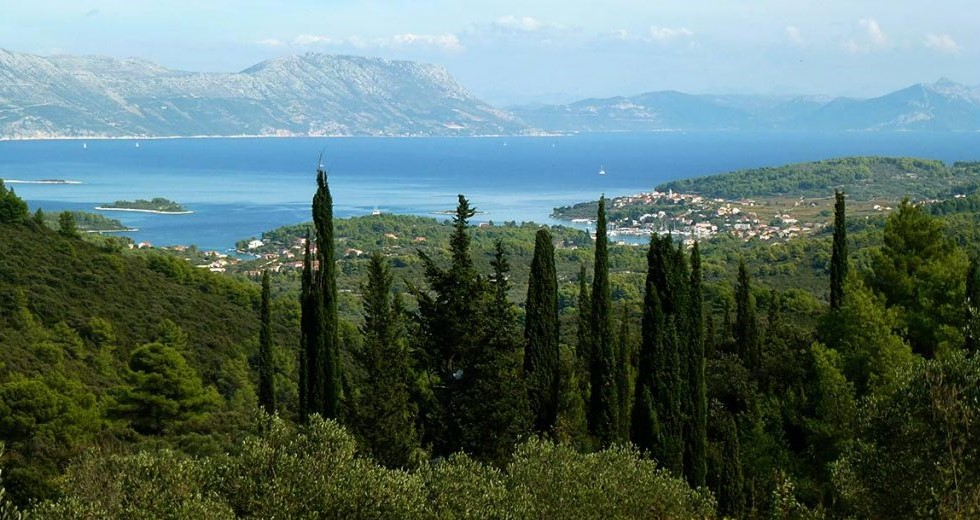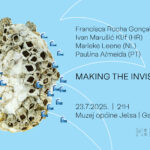As Slobodna Dalmacija reports, fossil teeth of fish from the order Pycnodontiformes were discovered in Borovčeva jama. This 43-meter-deep speleological object in the center of the Postrana hamlet was discovered by chance more than two years ago.
Namely, Borovčeva jama was named after Tonči Borovac, who was looking for a suitable place to plant a linden tree when he suddenly discovered the pit.
At the Postrana Local Committee’s initiative, the pit was explored by a team of speleologists led by Milan Vojinović from Korčula, a forestry engineer and president of the local society for the promotion and preservation of natural diversity “Adriatica.”
During Borovčeva jama’s research, fossil fish teeth were discovered, which were recently extracted to the surface, after numerous consents and permits.
“As the renovation of the Korcula City Museum is nearing completion, we decided to take the fossil and include it in the permanent museum exhibition. Obtaining permits for this venture was not easy. Still, we received approvals from the Ministry of Economy and Sustainable Development and the Public Institution for Management of Protected Nature Areas of Dubrovnik-Neretva County. We signed a contract with authorized speleologists to perform works to the pride of the Žrnovo and Postrana residents, and for the benefit of future visitors to the Korčula City Museum,” said the Deputy Mayor of Korčula Ivan Šale, a native of Žrnovo.
A depth of 35 meters
But it was harder to pull the fossil out of the pit than to do the paperwork. The pit begins with an awkward narrow entrance. The speleologists descended to a depth of 35 meters, set up a clay hoop, and watered the fossil with a protective rubber, followed by sawing and chiseling of the rock so that the sample could be safely transported to the surface.
It is a Pycnodontiformes fossil, which lived in shallow seas during most of the Mesozoic, spanning 175 million years. Their fossil remains were found worldwide, from the Triassic deposits to the ocean when they became extinct.
They are recognizable by their laterally flattened body and well-developed dentition, which consisted of several rows of rounded teeth with thick enamel surfaces. In short, Pycnodont fish are contemporaries of dinosaurs.
Experts say findings in Croatia are sporadic and limited to Upper Cretaceous sediments along the Adriatic coast. The most common species is Coelodus saturnus, found in localities from Pula to Brač. Some of the specimens from this group of extinct fish are kept in the Croatian Museum of Natural History.
The speleology instructor Branko Jalžić, who, together with his colleague Damir Basar removed the fossil from the Postrana pit, confirmed that this finding would be a valuable part of the Korčula museum exhibition.
Valuable proof and important scientific data
“The project was well-received by all participants, as always when we do underground research on Korcula. We completed the task successfully, the fossil was handed over to the Croatian Museum of Natural History, and it will be returned to Korcula after processing. There is no space in the museum to exhibit a more extensive story from that period, and that is why this small segment will be an important part of the future exhibition. Given the small number of fossils of pycnodont fish, each new find, including this one from Korčula, is a valuable proof of their distribution and important scientific data,” explained Jalžić.
He thanked the City of Korcula, the company ‘Adriatica,’ and the Voluntary Fire Brigade of Korčula, which gave them rooms for sleeping and rest. Many thanks go to Tonči Borovac, who gave them a technique they did not have or they did not have to bring from Zagreb to the island.
He also thank the Public Institution for the Management of Protected Nature Areas of the Dubrovnik-Neretva County, which financed the project and without whose support they would not be able to stay on Korcula.
Not the first fossil found on Korcula
However, this is not the first time speleologists discovered old fish teeth fossils on Korcula. Branko Jalžić, a member of the Croatian bio-speleology society, was a part of a cave research team back in 2018 that found fossil fish teeth at least 100 million years old. The teeth were also found in the same pit, Borovčeva jama. This fish probably lived in this area in the Cretaceous period and belonged to a group called bony fish.
They then discovered a total of three fossils, and in the 80s, the bones of a fossil rhino were found on the island of Korcula.

Fossil fish teeth found in Borovčeva jama on Korčula in 2018 / Adipa.hr
To read more news from Croatia, follow our dedicated page.











